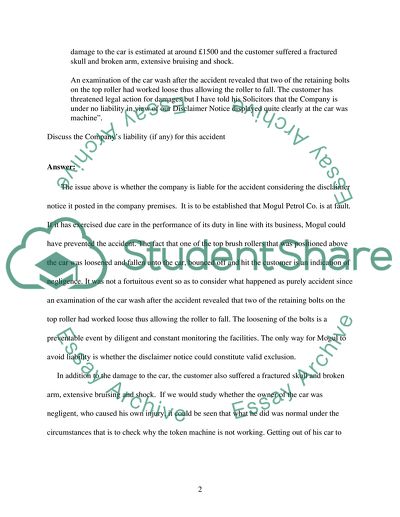Cite this document
(“GENERAL PRINCIPLES OF LAW/ THE LAW OF CONTRACT Essay - 2”, n.d.)
GENERAL PRINCIPLES OF LAW/ THE LAW OF CONTRACT Essay - 2. Retrieved from https://studentshare.org/miscellaneous/1536447-general-principles-of-law-the-law-of-contract
GENERAL PRINCIPLES OF LAW/ THE LAW OF CONTRACT Essay - 2. Retrieved from https://studentshare.org/miscellaneous/1536447-general-principles-of-law-the-law-of-contract
(GENERAL PRINCIPLES OF LAW/ THE LAW OF CONTRACT Essay - 2)
GENERAL PRINCIPLES OF LAW/ THE LAW OF CONTRACT Essay - 2. https://studentshare.org/miscellaneous/1536447-general-principles-of-law-the-law-of-contract.
GENERAL PRINCIPLES OF LAW/ THE LAW OF CONTRACT Essay - 2. https://studentshare.org/miscellaneous/1536447-general-principles-of-law-the-law-of-contract.
“GENERAL PRINCIPLES OF LAW/ THE LAW OF CONTRACT Essay - 2”, n.d. https://studentshare.org/miscellaneous/1536447-general-principles-of-law-the-law-of-contract.


